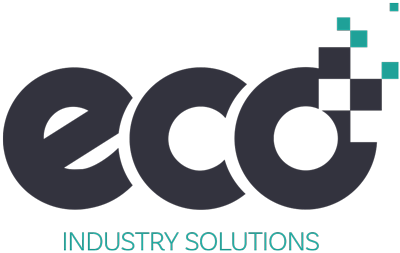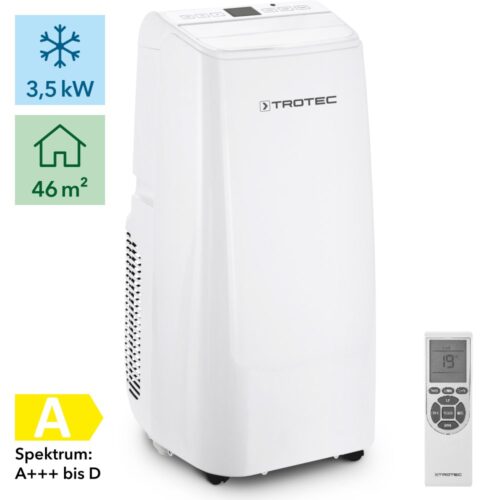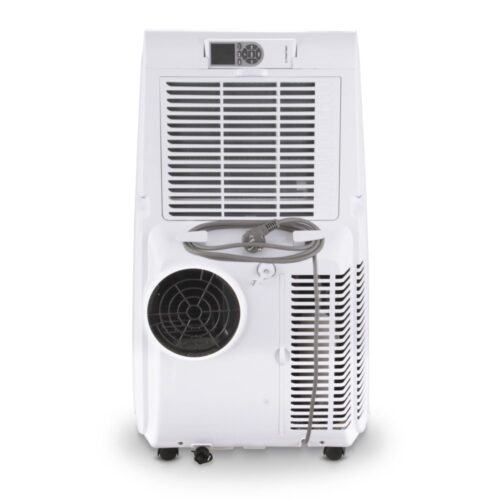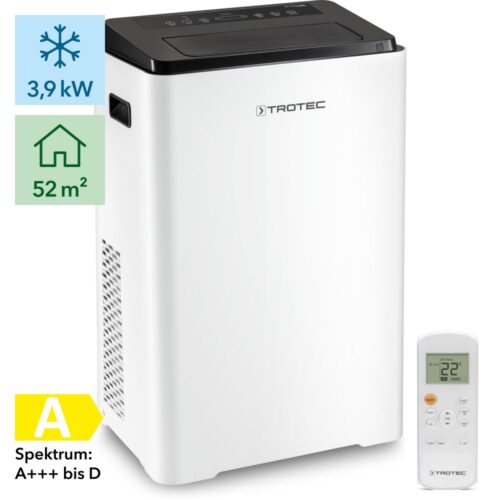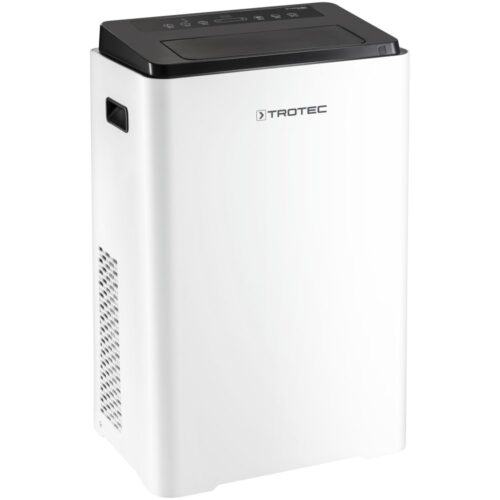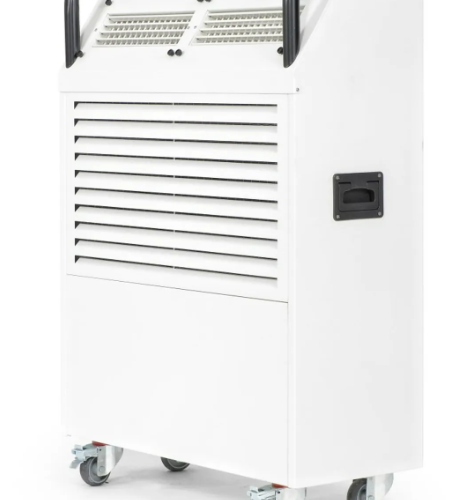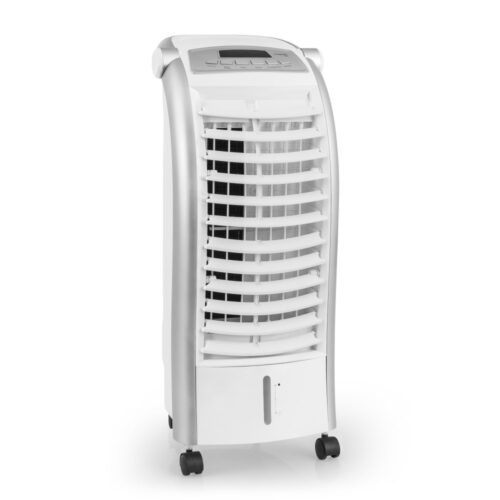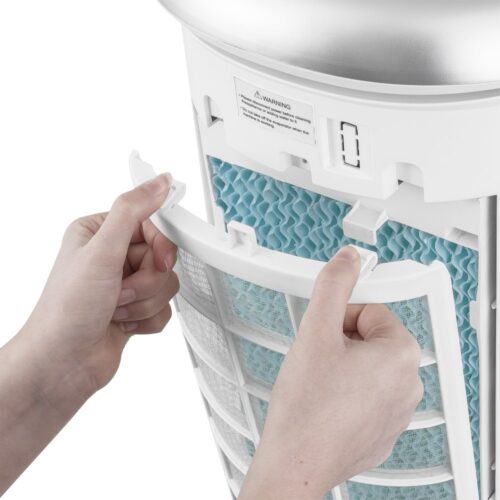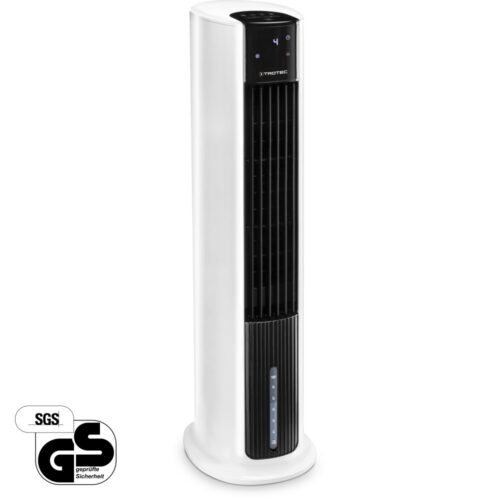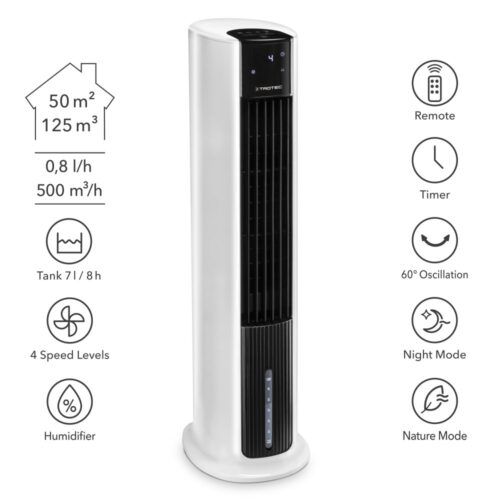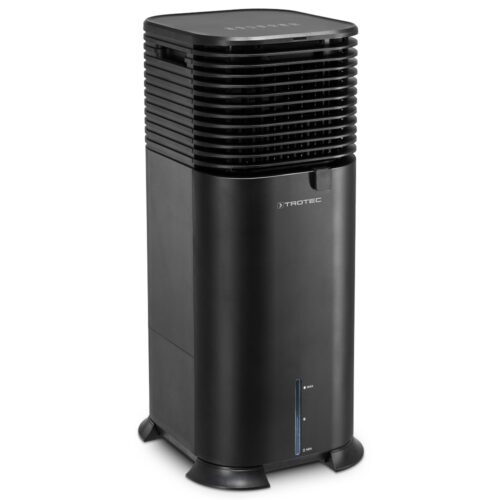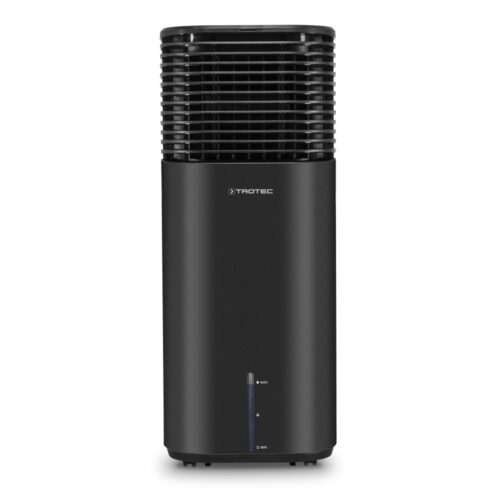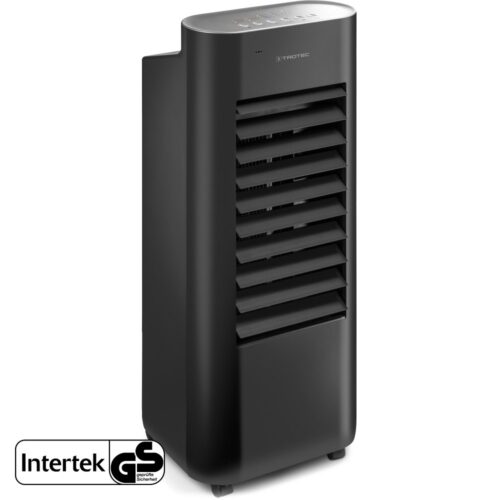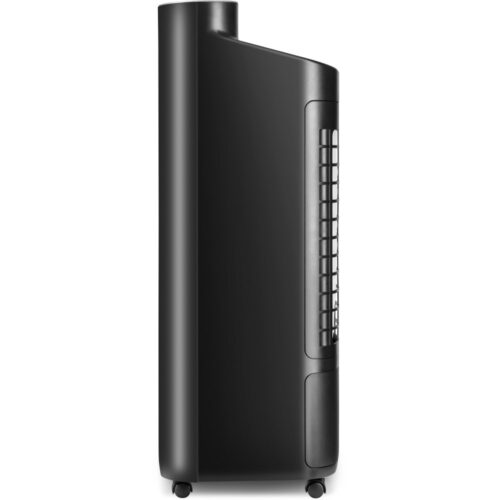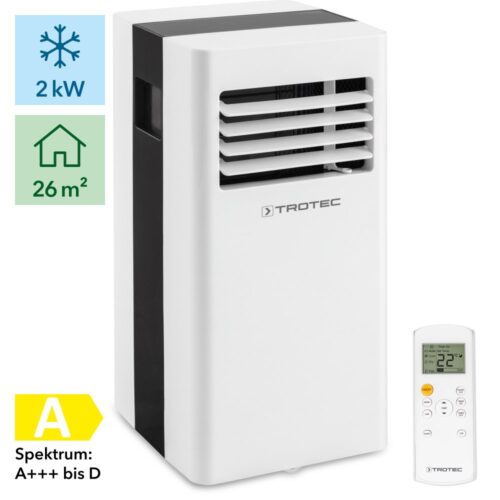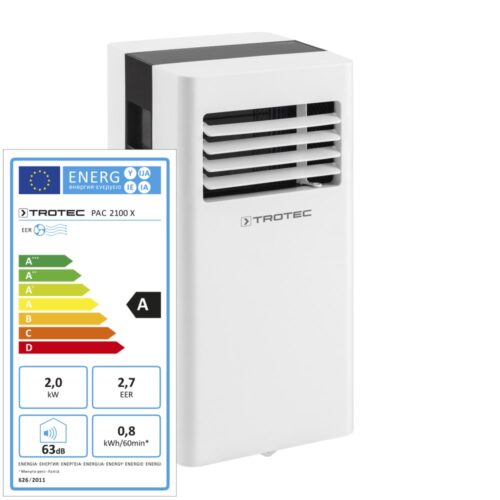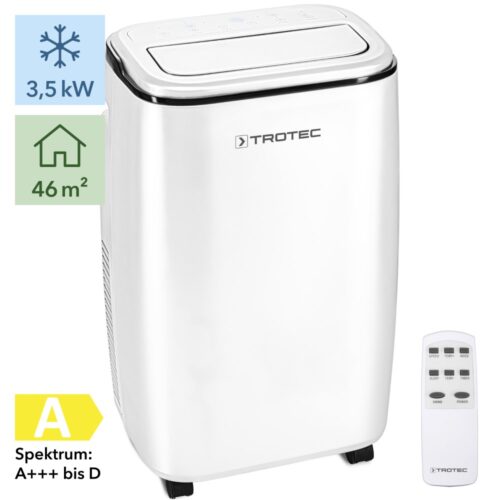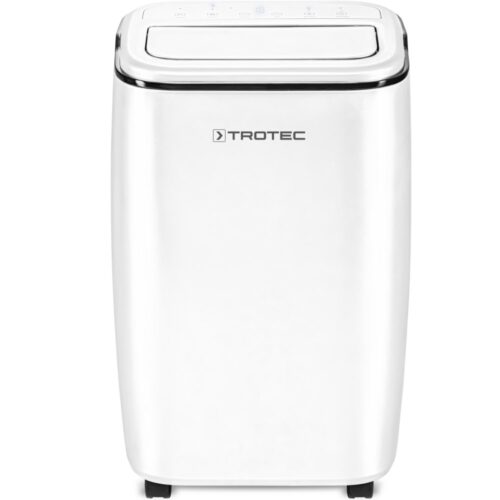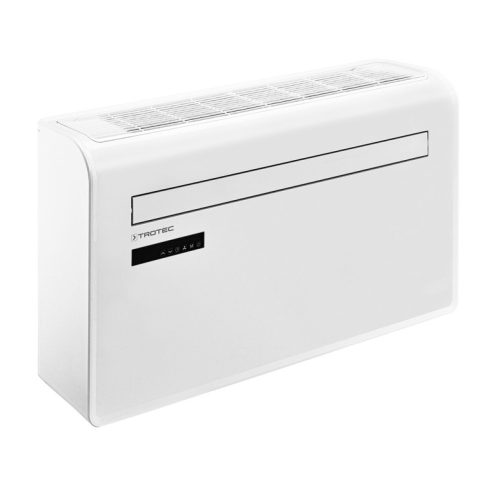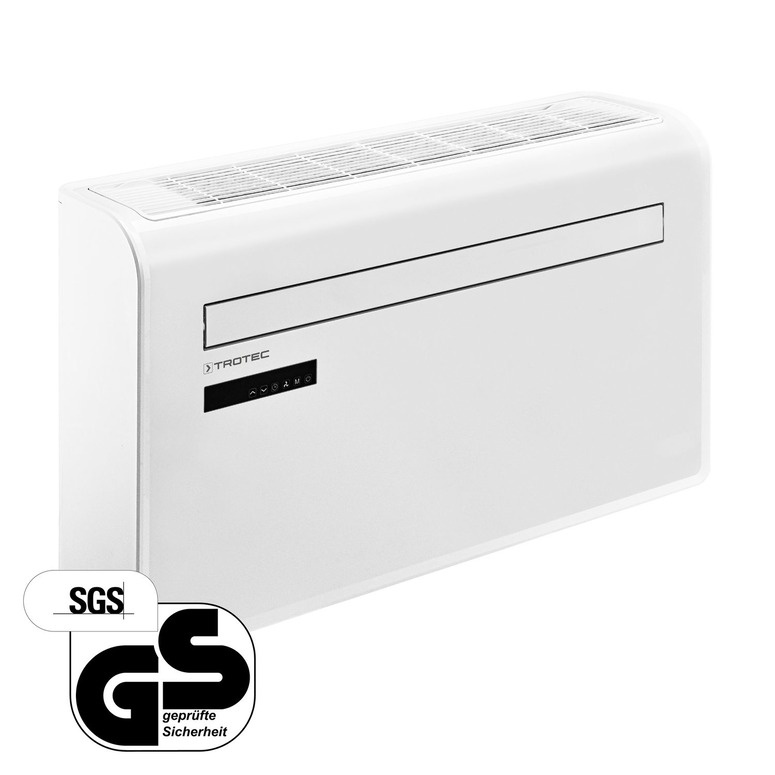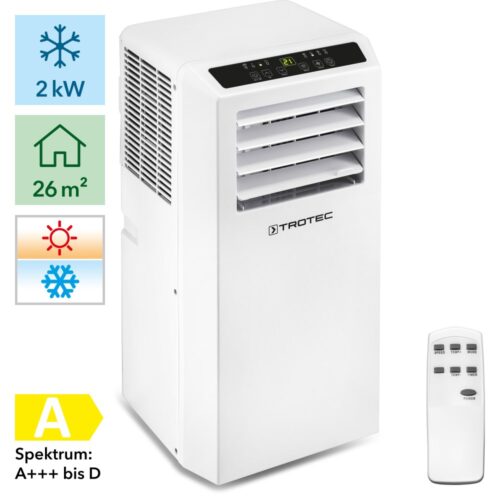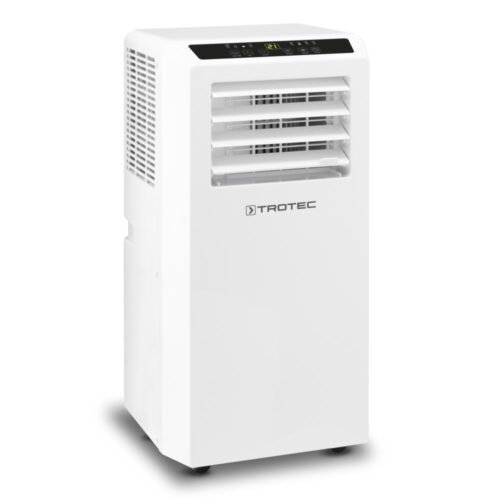An air conditioner is a machine that cools the air in a room or a building. It works by removing heat and humidity from the air and circulating cool air back into the room. The process involves the use of a refrigerant, which absorbs the heat from the air and carries it outside. The cooled refrigerant is then circulated back into the indoor unit, where it absorbs more heat and humidity. The process continues until the desired temperature is reached.
Showing all 12 results
Air Conditioners FAQ's
Air conditioners have become a necessity in modern-day living. They provide a range of benefits that make them an essential appliance in many households and commercial spaces. Here are some of the key benefits of air conditioners:
- Improved Comfort
Air conditioners are designed to regulate the temperature and humidity levels in a room. This means that you can enjoy a comfortable and consistent indoor environment, regardless of the outdoor weather conditions. With an air conditioner, you can stay cool and comfortable during the summer months and warm and cosy during the winter.
- Better Indoor Air Quality
Air conditioners not only regulate the temperature but also filter the air. They remove dust, dirt, and other particles from the air, which can improve the indoor air quality. This is particularly beneficial for individuals with allergies or respiratory issues.
- Increased Productivity
Studies have shown that individuals working in an air-conditioned environment are more productive than those in a hot and humid environment. This is because the comfortable indoor temperature allows for better concentration and focus, resulting in increased productivity.
- Improved Sleep Quality
An air-conditioned bedroom can improve sleep quality by regulating the temperature and humidity levels. This creates a comfortable and relaxing sleeping environment, which can result in a more restful and rejuvenating sleep.
- Protection of Electronic Devices
High temperatures and humidity levels can damage electronic devices such as computers, televisions, and smartphones. Air conditioners regulate the temperature and humidity levels, which can help protect your electronic devices and prolong their lifespan.
- Reduced Risk of Dehydration
Hot and humid environments can lead to excessive sweating and dehydration. Air conditioners regulate the temperature and humidity levels, which can reduce the risk of dehydration.
- Increased Lifespan of Furniture and Upholstery
Excessive heat and humidity can damage furniture and upholstery. Air conditioners regulate the temperature and humidity levels, which can prolong the lifespan of your furniture and upholstery.
Air conditioners are an essential appliance for most homes and offices, especially during the hot summer months. They help to regulate the temperature and create a comfortable living or working environment. However, with so many different types of air conditioners available in the market, it can be challenging to choose the right one for your needs.
Types of Air Conditioners:
- Window Air Conditioners:
Window air conditioners are the most popular and affordable type of air conditioner. They are designed to fit into a window frame and are easy to install. They work by drawing in warm air from the room, cooling it with refrigerant, and then expelling the cool air back into the room. Window air conditioners are ideal for small to medium-sized rooms.
- Split Air Conditioners:
Split air conditioners consist of two parts, an indoor unit, and an outdoor unit. The indoor unit is mounted on the wall, while the outdoor unit is placed outside the building. Split air conditioners are more expensive than window air conditioners, but they are also more energy-efficient and quieter. They are suitable for larger rooms and are available in different capacities.
- Portable Air Conditioners:
Portable air conditioners are a good option for those who want to cool specific areas of their homes or offices. They are easy to move around and do not require any installation. Portable air conditioners work by drawing in warm air from the room, cooling it with refrigerant, and then expelling the cool air back into the room. They are ideal for small to medium-sized rooms.
- Central Air Conditioners:
Central air conditioners are the most expensive type of air conditioner, but they are also the most effective. They are designed to cool an entire house or building and are installed by professionals. Central air conditioners work by drawing in warm air from the house, cooling it with refrigerant, and then expelling the cool air back into the house through ducts. They are ideal for large houses and commercial buildings.
Cleaning your air conditioner is an essential maintenance task that ensures optimal performance and prolongs the lifespan of the appliance. The frequency of cleaning your air conditioner will depend on several factors, including the type of air conditioner and how often it is used.
- Window Air Conditioners
For window air conditioners, it is recommended to clean or replace the air filter at least once every two weeks during the summer months when the air conditioner is in regular use. Additionally, the unit should be thoroughly cleaned and inspected at the beginning and end of the summer season to ensure optimal performance.
- Portable Air Conditioners
Portable air conditioners typically have washable air filters that should be cleaned at least once a month during the summer months. Additionally, the unit should be thoroughly cleaned and inspected at the beginning and end of the summer season.
- Ductless Mini-Split Air Conditioners
Ductless mini-split air conditioners require less frequent cleaning compared to window and portable air conditioners. The indoor unit should be cleaned at least once a year, and the outdoor unit should be inspected and cleaned by a professional HVAC technician every three to five years.
General guidelines for how often to clean different components of your air conditioner:
- Air filter:
Clean or replace the air filter every 1-3 months, depending on usage. A dirty or clogged filter can reduce airflow and efficiency of the unit.
- Coils:
Clean the evaporator and condenser coils every year to ensure optimal performance. Dirty coils can reduce efficiency and potentially cause damage to the unit.
- Ducts:
Have your ducts inspected and cleaned every 3-5 years, or more frequently if you notice a decrease in performance. Dirty ducts can reduce airflow and efficiency of the unit.
- Exterior:
Clean the exterior of the unit regularly, especially if it is exposed to dirt, debris, or vegetation. This can help prevent damage to the unit and improve performance.
It is important to note that the frequency of cleaning may vary depending on the usage of the air conditioner and the indoor air quality. If you have pets or live in a dusty environment, you may need to clean your air conditioner more frequently.
Air filters in air conditioning systems should be replaced regularly to ensure the unit functions properly and the air quality is maintained. The frequency of filter replacements depends on several factors, including the type of filter, the frequency of use, and the level of air pollution in the area.
As a rule of thumb, air filters should be replaced every 3 months. However, some filters may need to be replaced more frequently, such as those in homes with pets or in areas with high levels of pollution. It is recommended to check the manufacturer’s instructions for the specific type of filter in your air conditioner to determine the recommended replacement schedule.
In addition, it is important to regularly inspect the air filter to ensure it is clean and functioning properly. A dirty or clogged filter can reduce the air flow and put additional strain on the unit, leading to higher energy bills and potentially damaging the system over time. If the filter appears dirty or clogged, it should be replaced immediately, regardless of the recommended replacement schedule.
Air conditioners themselves are not harmful to your health, but if not properly maintained, they can have negative effects on air quality and potentially cause health issues.
One concern is the growth of mould or bacteria in the unit, which can be spread throughout the room and potentially cause respiratory problems or allergic reactions. This can be prevented by regularly cleaning and maintaining the unit, including the air filter, coils, and ducts.
Another concern is the use of air conditioners in rooms with poor ventilation, which can lead to the recirculation of stale air and an increase in indoor air pollutants such as dust, pollen, and volatile organic compounds (VOCs). This can be mitigated by ensuring adequate ventilation and regularly opening windows or using an air purifier.
Additionally, air conditioners can dry out the air and cause skin and eye irritation, especially in low humidity environments. This can be prevented by using a humidifier or ensuring the air conditioner is not set to excessively low temperatures.
Overall, air conditioners can provide relief from hot and humid environments and improve indoor comfort, but it is important to maintain them properly and use them in well-ventilated environments to prevent potential health issues.
The lifespan of an air conditioner depends on several factors, including the quality of the unit, how often it is used, and how well it is maintained. In general, air conditioners can last anywhere from 10 to 15 years, although some may last longer with proper maintenance.
Regular maintenance, such as cleaning and replacing air filters, checking, and cleaning coils, and inspecting and cleaning ducts, can help prolong the life of the unit and ensure optimal performance. Neglecting maintenance can cause the unit to work harder, leading to increased energy bills and potentially damaging the system over time.
In addition, the quality of the unit plays a role in its lifespan. Higher quality units may last longer and require less maintenance than lower quality units. It is recommended to research and invest in a reputable brand and model of air conditioner to ensure it lasts as long as possible.
Overall, regular maintenance and investing in a high-quality unit can help extend the lifespan of an air conditioner and provide long-term cost savings.
The most energy-efficient temperature to set your air conditioner depends on several factors, including the climate in your area, the size and layout of your home, and your personal comfort preferences. However, in general, setting your air conditioner to 78°F (26°C) when you are at home and adjusting the temperature higher when you are away.
Setting your air conditioner to 78°F (26°C) is a balance between energy efficiency and comfort, as it allows you to stay cool while minimising energy usage. Every degree lower can increase energy usage by 3-5%, so setting the temperature lower than necessary can significantly increase energy bills.
In addition to setting the temperature, it is important to use other energy-saving strategies, such as using ceiling fans to circulate air and block out sunlight with shades or curtains during the hottest parts of the day.
Overall, setting your air conditioner to 78°F (26°C) when you are at home and adjusting it higher when you are away is a good starting point for energy efficiency and comfort, but it is important to consider your specific circumstances and adjust accordingly.
Proper maintenance of air conditioners is essential for optimal performance and longevity of the unit.
- Clean and replace air filters:
Dirty or clogged air filters can restrict air flow and reduce the efficiency of the unit. Clean or replace the air filter every 1-3 months, depending on usage.
- Check and clean coils:
Over time, dirt and debris can accumulate on the evaporator and condenser coils, reducing the efficiency of the unit. Clean the coils every year to ensure optimal performance.
- Inspect and clean ducts:
Ducts can become clogged with dirt and debris, reducing air flow and efficiency. Have your ducts inspected and cleaned every 3-5 years, or more frequently if you notice a decrease in performance.
- Check and refill refrigerant:
Low refrigerant levels can cause the unit to work harder and reduce the efficiency of the system. Have refrigerant levels checked and refilled as necessary.
- Keep the unit clean:
Dirt and debris can accumulate on the unit, reducing efficiency and potentially causing damage. Clean the exterior of the unit regularly and ensure it is free of debris.
- Schedule professional maintenance:
Have your air conditioner professionally maintained annually to ensure optimal performance and detect any potential issues before they become major problems.
By following these maintenance tips, you can help ensure optimal performance and longevity of your air conditioner, as well as reduce energy costs and prevent potential damage to the unit.
Air conditioners can experience various issues over time, which can lead to reduced performance and potential damage to the unit.
- Insufficient cooling:
If your air conditioner is not cooling your space as well as it used to, it may be due to a dirty or clogged air filter. Check and clean or replace the air filter as necessary. It could also be due to low refrigerant levels, which require a professional to refill.
- Refrigerant leaks:
If your air conditioner is leaking refrigerant, it can cause reduced cooling performance and potential damage to the unit. Have a professional technician locate and repair the leak and refill the refrigerant as necessary.
- Frozen evaporator coils:
If the evaporator coils are frozen, it could be due to restricted airflow or a refrigerant leak. Turn off the unit and allow the coils to thaw, then check and clean the air filter and ensure proper airflow. If the issue persists, have a professional technician inspect the unit for leaks.
- Faulty thermostat:
A malfunctioning thermostat can cause the unit to cycle on and off improperly, leading to reduced cooling performance. Check the thermostat settings and replace the batteries if necessary. If the issue persists, have a professional technician inspect and replace the thermostat if necessary.
- Clogged drain line:
Over time, the drain line can become clogged with dirt and debris, causing water to back up and potentially damage the unit. Clean the drain line with a mixture of water and bleach, or have a professional technician clean the line.
By addressing these common air conditioner problems in a timely manner, you can ensure optimal performance and longevity of your unit. Regular maintenance and professional inspections can also help prevent these issues from occurring in the first place.
